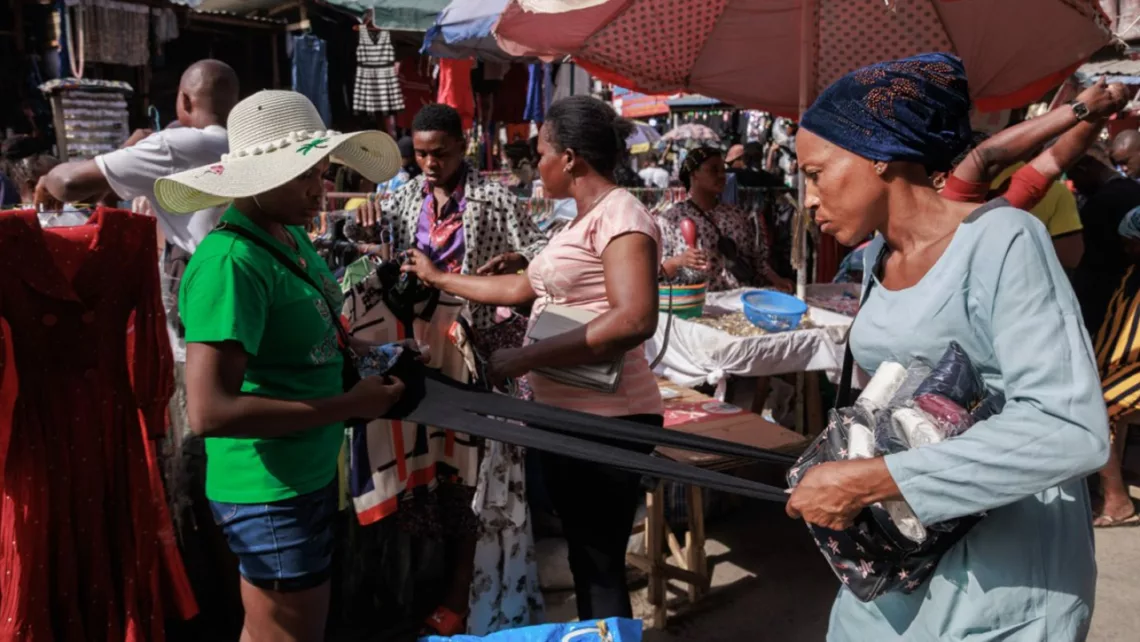Small businesses and consumer goods firms are facing heavy disruption in their supply chain and operational costs due to inflation, currency risk, removal of fuel subsidies leading to a significant increase in energy costs, and scarcity of foreign exchange (FOREX). In recent times revenues and business forecasts are set to suffer short-term pressures, declines and low or no profits. Because the Nigerian economy is largely import-driven, the unstable foreign exchange rate continues to generate higher import bills for many of these companies. Consequently, this results in a significant rise in the expenses associated with production and manufacturing in the country, and we have noticed the ongoing constraints on consumer spending and business continuity amidst the rising inflation. Apart from the challenges above, power, restocking cost, and transportation are among other key factors contributing to the high expenses incurred by all forms of businesses in the country, be it micro, small or big companies at this time. In fact, small businesses are struggling, and many are on the brink of collapse. Even big companies such as Nigerian Breweries have posted losses and released their audited results for the period ended December 31, 2023, revealing a net loss of N106 billion during the year, largely induced by the impact of the devaluation of the naira on its foreign exchange transactions. Multinational companies in the country, such as GlaxoSmithKline Plc, Nestle MTN, and Unilever, are also posting losses, and the list of these companies reporting losses continue to grow. These companies may be unable to pay year 2023 dividends to their shareholders based on this status, which is a concern. If these challenges persist, many of these multinational companies will hold extremely high foreign-currency-denominated debts, which may significantly strain their business continuity and job security for the teeming employees. Because inflation is still rising, and new price level and high cost of producing goods and services have continued to be the trend. Due to this inflation, purchasing power is weakening and the ability to buy goods and services has significantly decreased. Nigeria’s headline inflation has reached its highest levels in over 18 years at 29.90 per cent in January 2024, according to the Nigerian Bureau of Statistics (NBS). But the real inflation rate in the country occasioned by the food inflation could be well above that.
The upward trend in the prices of basic food items continues to disrupt the spending pattern of consumers and citizenry, and individuals are refraining from spending on other households’ needs, products and services. Consumption and spending are currently weak in the country, which should ordinarily be the economy’s primary driver.
Therefore, to stem the current tides, companies may need to adopt strategic measures to cushion the effect of these challenges, particularly the volatile foreign exchange and harsh business environment. One key way of managing businesses at this time is through cost-saving measures, and one of them is through technology adoption, particularly for service-oriented businesses. Business survival and continuity at this time depend largely on the ability to manage operational costs. If operational cost continues to increase and these businesses cannot transfer these costs to the customers, the businesses will be at risk and in a vulnerable position.
The use of technology may be helpful at this time because it will allow the automation of common processes in business, such as distribution, sales, after-sales service, and inventory management. The marketplace for business transactions will be extended beyond traditional boundaries with the adoption of technology through e-commerce.The necessary shopping, bargaining, and transactions can take place anywhere, and businesses can be accessible everywhere and anywhere in Nigeria with the adoption. Obviously, this strategy’s adoption will provide customer convenience that will enhance and reduce shopping costs.
Transactional and operational costs of online transactions are lower; therefore, business operators can showcase, transact and sell anything, even perishable items, such as fresh tomatoes, chicken, and so on these platforms. In essence, it will reduce huge transportation costs, and e-commerce will provide the platform for businesses, irrespective of their size or number of employees, to thrive beyond borders and geographical location and build reputations. If a country has businesses that produce goods and services that can be sold in the international market, then there is a great likelihood that its currency will be strong. Companies should strive to achieve this at this time and connect with their high-net-worth customers and business partners promptly and efficiently nationwide and internationally.
Commercial activities are aided faster online, and effective usage of e-commerce can provide this. Likewise, it is convenient for clients to transact online because it will save them the stress of transportation and other logistic cost. By adopting e-commerce, businesses benefit from increased revenues and sales, improved market reach, access to new markets globally and cost savings on marketing and communication expenditures.
Therefore, the ability to quickly and flexibly incorporate new strategies such as e-commerce will set business operators apart during this period, including young entrepreneurs, women in business, agriculturalists, manufacturers and business executives. It will change shopping and consumer behaviour.
How may you obtain advice or further information on the article?




